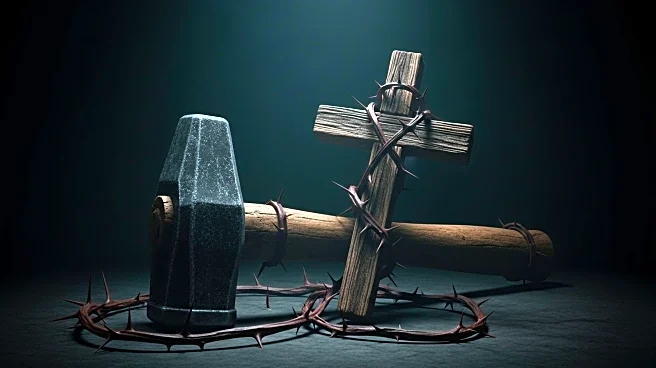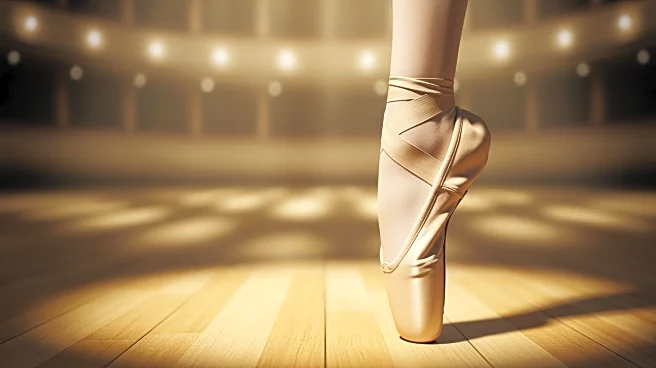What's Happening?
Nicolas Cage is set to star in a new horror film titled 'The Carpenter's Son,' which explores the childhood of Jesus with a horror twist. The film, directed by Lotfy Nathan, draws inspiration from the apocryphal Infancy Gospel of Thomas, a text dating back to the 2nd century AD. The story follows a family hiding in Roman Egypt, focusing on a boy who begins to doubt and rebels against his guardian, the Carpenter, revealing his inherent powers. The cast includes FKA twigs as the mother, Noah Jupe as the Boy, and Souheila Yacoub. The teaser, featuring Cage presumably as the Carpenter, showcases eerie elements such as buzzing flies, hinting at the natural and divine horrors the characters face.
Why It's Important?
The film 'The Carpenter's Son' represents a unique blend of religious narrative and horror, potentially attracting audiences interested in unconventional storytelling. Nicolas Cage's involvement adds star power and intrigue, given his history of taking on diverse and edgy roles. This film could spark discussions on the portrayal of religious figures in cinema, especially with its horror elements. It may also influence future projects that explore religious themes through different genres, impacting how filmmakers approach such narratives.
What's Next?
The Carpenter's Son is scheduled to hit theaters this fall. As the release date approaches, audiences and critics will likely debate its portrayal of religious themes and its horror elements. The film's reception could influence future projects that blend religious narratives with unconventional genres. Additionally, the film's success or failure may impact Nicolas Cage's career trajectory, potentially leading to more roles in similar genre-bending films.
Beyond the Headlines
The film's exploration of Jesus' childhood through a horror lens raises questions about the ethical implications of depicting religious figures in such a manner. It challenges traditional portrayals and may provoke discussions on the boundaries of artistic expression in religious contexts. The film could also contribute to broader cultural conversations about the intersection of religion and entertainment, examining how audiences perceive and engage with religious narratives in modern media.










